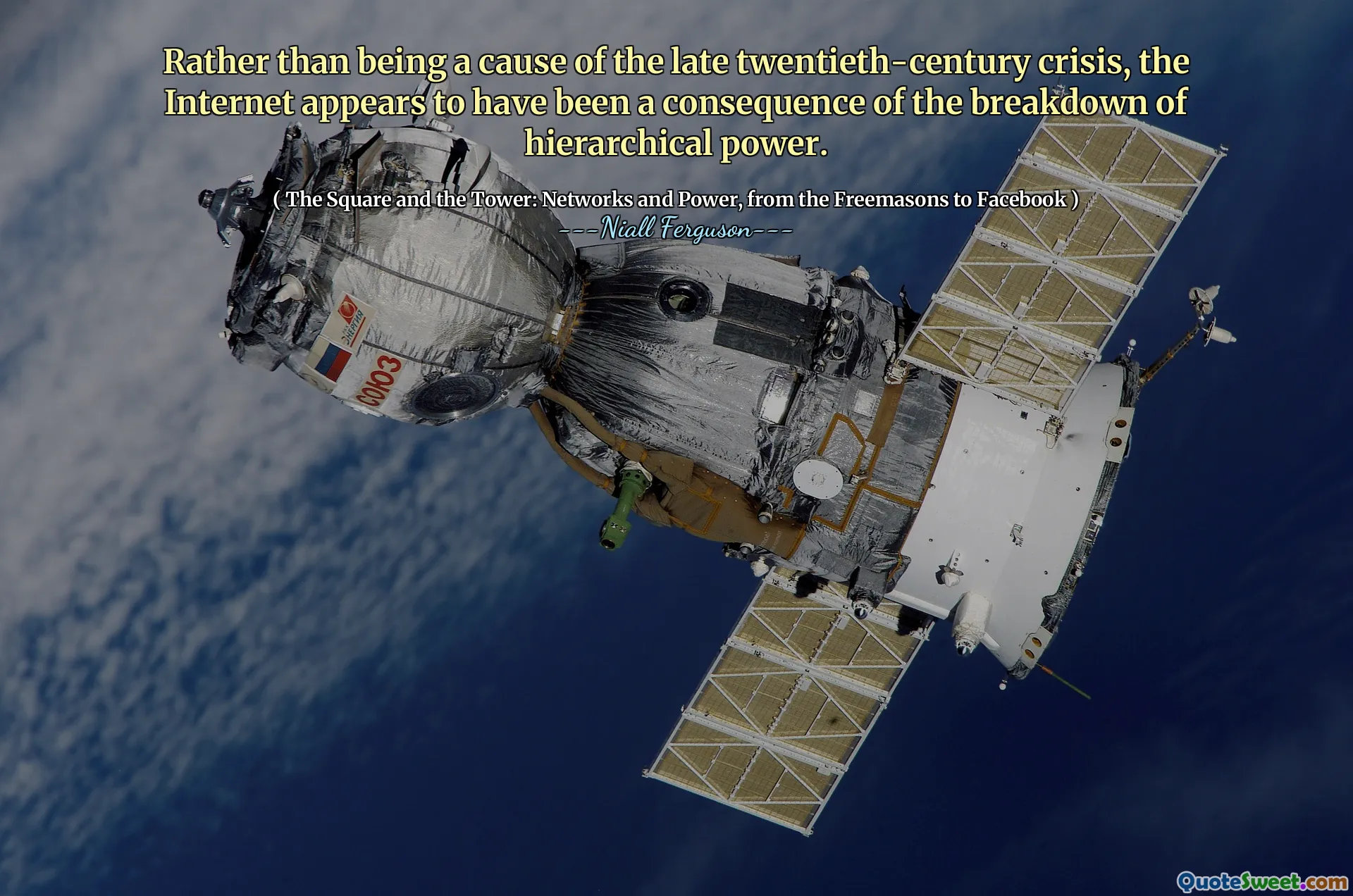
Rather than being a cause of the late twentieth-century crisis, the Internet appears to have been a consequence of the breakdown of hierarchical power.
Niall Ferguson, in his book "The Square and the Tower: Networks and Power, from the Freemasons to Facebook," explores the relationship between the rise of the Internet and the decline of traditional hierarchical structures. He argues that rather than seeing the Internet as a primary driver of chaos and conflict in the late twentieth century, it should be viewed as a byproduct of the weakening of established power systems. This perspective highlights the Internet's role in reflecting and reshaping societal dynamics.
This analysis suggests that the emergence of digital networks was not the origin of the crisis but rather an outcome of shifting power relations. As older forms of authority crumbled, networks facilitated new connections and communications, ultimately transforming how individuals and groups interact. Ferguson's insights invite readers to reconsider the complex interplay between technology and power in modern society.











